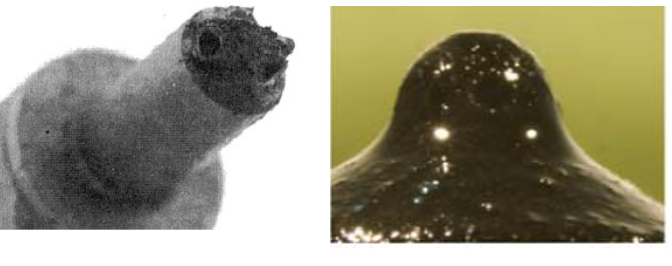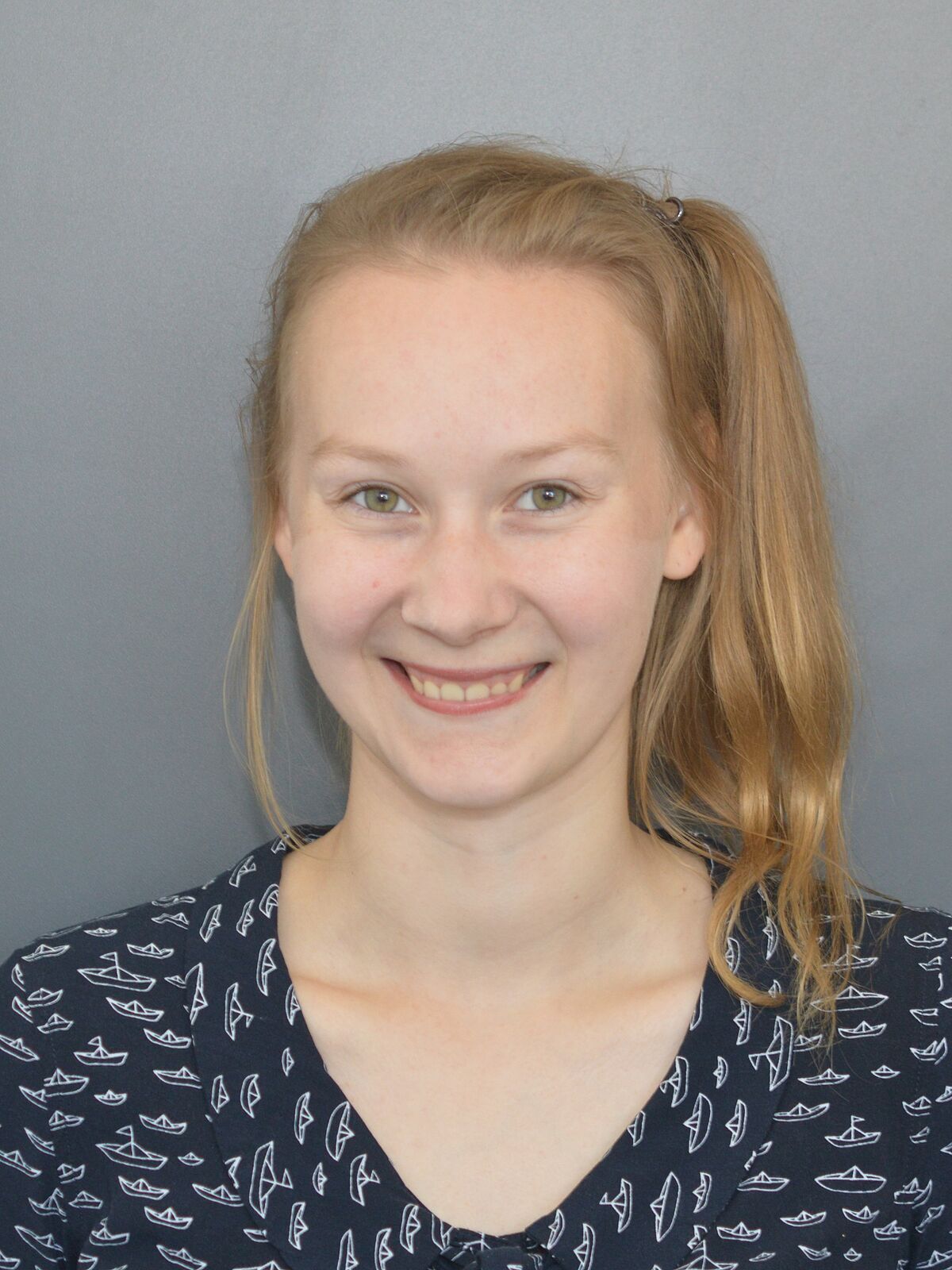Influence of the fuel composition on the formation of deposits during the evaporation of liquid fuels in porous media
Motivation
Devices for the combustion of heating oil often exhibit the phenomenon that solid deposits are forming on the inner surfaces (see for example figure 1). This leads to an impairment of the operation up to a complete shutdown of the device. The underlying reasons for this disturbance are not completely understood and are sometimes unpredictable. Two heating oils with similar physical properties can show completely different behavior in this respect, one forming a lot of depositing material, the other almost none. The situation gets even more complicated when heating oils with different content of regenerative fuels such as FAME are regarded. Since their share in the utilized heating oil is expected to be increasing steadily in the future, a solid prediction of their tendency to form deposits should be known beforehand to ensure the safe operation of the combustion devices. Moreover, the storage of the fuels may also have an influence depending on its duration.
Aim and first results of the project

Since the tendency to form solid deposits obviously is not correlated to general physical properties of the fuels such as density, viscosity, or heat capacity, it is hypothesized that differences in the chemical composition may give valuable hints in this respect. Therefore, an analytical approach was chosen, consisting of conducting thermal analysis of the different fuels combined with a detailed chemical characterization of the evaporating chemical compounds. The respective product patterns will be compared to test facility experiments with fibrous-web combusters taken for evaporation of heating oils, where the deposit formation is evaluated. The latter experiments are carried out by the project partner Öl-Wärme-Institut. Chemical analysis of the deposits is attached afterwards.
It is expected that the differences in the product pattern of the evaporated substances are marginal, therefore a detailed chemical characterization is called for involving extensive statistical data analysis. The planned analytical setup will consist of a thermal balance (combined with a calorimeter) that is hyphenated to a time-of-flight mass spectrometer (TOF) operating with soft photoionization. A further enhancement of the method is supposed to be achieved by implementing a fast-gas chromatography unit between the thermal balance and the mass spectrometer. The additional step of separation will help to distinguish isobaric compounds and strengthen the assignment of peaks in the mass spectra to actual distinct chemical species. One alternative for photoionization is single-photon ionization (SPI), which is able to ionize a wide variety of organic compounds, as long their ionization energies are below the photon energy of the light source. Previous studies however have already suggested that differences in the pattern of polyaromatic compounds in the fuel are possible indicators for deposit formation. Therefore an additional ionization method, resonance-enhanced multi-photon ionization (REMPI) will be implemented as well. REMPI is well known for being very selective as well as sensitive for aromatic species and should thus provide an improved means of detection for such substances. In addition to TOF also ultra-high resolution Fourier Transform Ion Cyclotron Resonance (FT-ICR) mass spectrometry will be applied. The Rostock FT-ICRMS unit is equipped with several thermal inlet techniques such as a thermal balance coupling and a direct insertion probe (DIP). Furthermore, different ionization techniques are available for FT-ICRMS as well.
Consortium
- Universtiy Rostock
- Oel-Waerme-Institut GmbH, Herzogenrath, Germany
Arbeitsgemeinschaft industrieller Forschungsvereinigungen (AiF) via Deutsche Gesellschaft für Erdöl, Erdgas und Kohle e.V. (DGMK)
Project realization at University Rostock
Dr. Anika Neumann
Universität Rostock
Institut für Chemie
Abteilung für analytische Chemie
Interdisziplinäre Fakultät Life Light & Matter
Anika Neumann
Albert-Einstein-Straße 25
18059 Rostock
Tel.: +49 (0) 381 498 - 8990
Dr. Thorsten Streibel
Universität Rostock
Institut für Chemie
Abteilung Analytische und Technische Chemie
Dr. Thorsten Streibel
Albert-Einstein-Straße 27
18059 Rostock
Tel.: +49 (0) 381 498 - 6536



